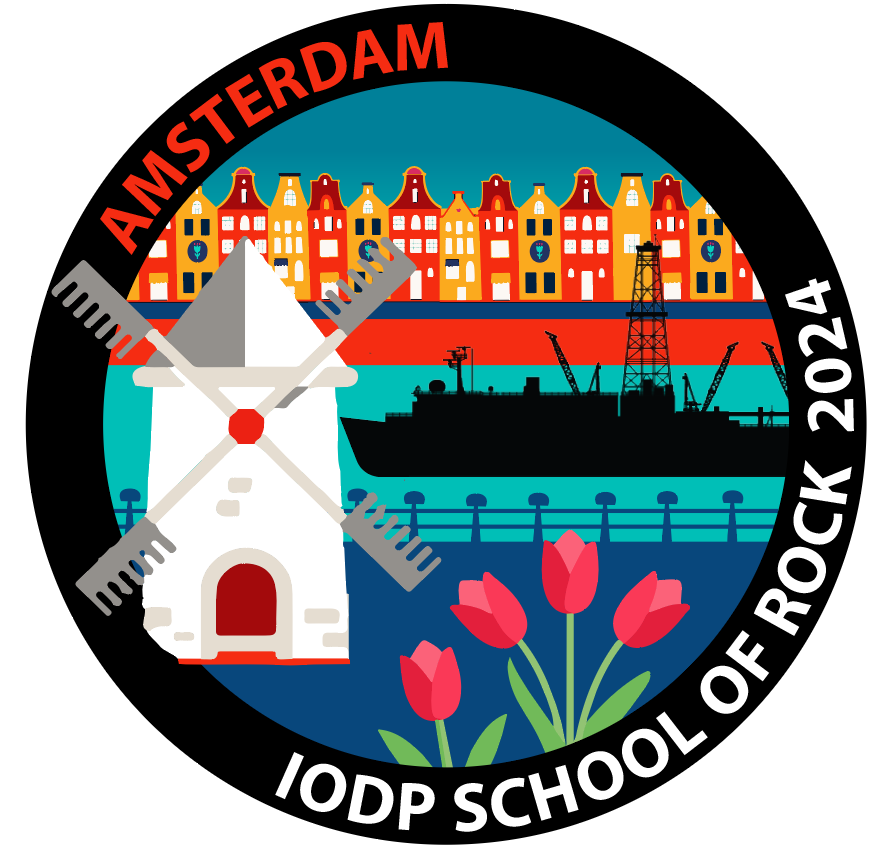
School of Rock: Welcoming a New Era
School of Rock: May 2024
The School of Rock has been operating since 2005 as a professional development experience to engage educators in the science and engineering of scientific ocean drilling. At the end of 2024, the current IODP program and the JR platform as its U.S. vessel will be ending. We would like to take this last opportunity on the JR to envision and plan creatively and out-of-the-box for post-2024 professional development programs (broadly defined) using legacy cores, scientific personnel, other relevant institutions and research vessels, and both existing and desired resources.
Goals for the 2024 School of Rock:
- Demonstrate the power of the School of Rock professional development model
- Build on ideas generated in the IMPACT workshop and beyond to more fully develop and flesh out ideas for scientific ocean drilling-related professional development post-JR
- Leave with detailed and realistic proposal outlines to create and fund these ideas
Where: On board the JOIDES Resolution, tied up in Amsterdam, Netherlands
What we will do: For about half of each day, we plan to utilize the JR’s state of the art laboratory facilities to explore scientific questions into cores and data, what those tell us about Earth’s history, and how we use existing classroom resources on those topics. In the other half of each day, we will brainstorm ideas, take field trips in Iceland, and spend time writing up these ideas into actionable proposals.
Expedition Project Manager
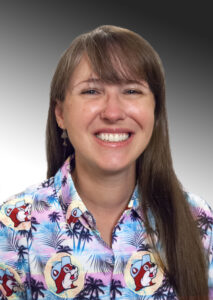
Dr. Laurel Childress has worked for the International Ocean Discovery Program (IODP) at Texas A&M University in College Station, Texas (USA) since 2017 as an Expedition Project Manager/Staff Scientist. In this role she provides scientific expertise, leadership, and advocacy to the implementation of IODP expeditions and science services. This includes facilitating and sailing on IODP expeditions, conducting independent IODP and non-IODP research, and contributing to science engagement activities of IODP and Texas A&M University. Her research includes biogeochemical cycling and big data/data mining of IODP data. She also serves as the JROC (JRSO Outreach Coordinator). This will be her eighth time onboard the JR.
Instructors
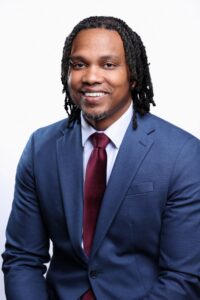
Dr. H. Justin Ballenger holds the position of Assistant Professor of STEM Education within the Division of Continuing and Professional Studies at Morehouse College. Additionally, he serves as the Deputy Director of the Atlanta University Center (AUC) Data Science Initiative and assumes the role of Director of Research for the National Data Science Alliance. His professional endeavors center on promoting inclusivity in data science and STEM, both in research and community engagement. In his capacity as the Deputy Director of the AUC Data Science Initiative, Dr. Ballenger spearheads initiatives aimed at expanding research infrastructure and fostering collaboration in the field of Space STEM throughout the AUC, while also championing broader engagement across Historically Black Colleges and Universities (HBCUs). He is an active participant in faculty advisement groups for the White House Office of STEM and Technology Policy and the National Space Council, as well as NASA’s OSTEM program. Moreover, he has collaborated with the STEM Seas program and the School of Rock to broaden participation in the Geoscience and expand the future STEM workforce. In his role as the Executive Vice President of the Hines Family Foundation, Dr. Ballenger takes the lead in conceptualizing and executing STEM outreach programs tailored to benefit the African American community. His unwavering dedication centers on fostering STEM education to cultivate the next generation of innovative STEM leaders.
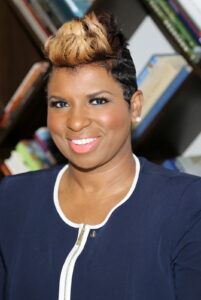
Valerie Bennett, PhD, EdD is currently the Program Director of Graduate Teacher Education in STEM at Clark Atlanta University. In this role, she is committed to teaching STEM teachers how to teach STEM through innovation, technological advances and through an equity lens. With degrees in Mechanical Engineering and Higher Educational Leadership, she enjoys sharing her research in using AI, adaptive learning and resources to be a STEM Change Agent. Her other research interests are in fatigue crack growth propagation modeling.
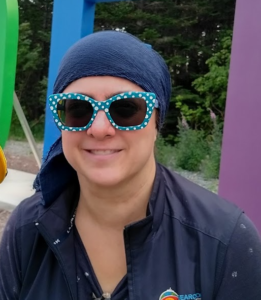
Sharon Cooper oversees Education and Outreach programs for the U.S. Science Support Program (USSSP) office of the International Ocean Discovery Program. She first learned about IODP when working for the Smithsonian on developing the Sant Ocean Hall, during which she sailed on the very first School of Rock in 2005 and became permanently hooked. Now a full-fledged accidental geologist, she creates and implements programs around the world to encourage students, teachers and the general public to fall in love with STEM and get their minds blown by the amazing science IODP and related programs do every day. In other parts of her life, she is a children’s book author, wife, mom, cook and laundry-folder. She is married and has three boys who refer to the JR as “mommy’s ship.”
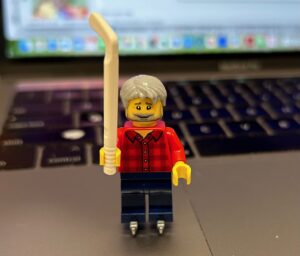
Mark Leckie is a micropaleontologist (
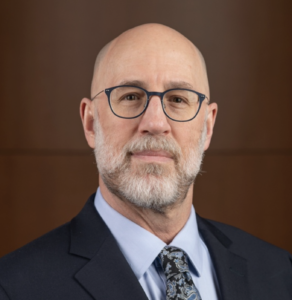
Jon Lewis is a professor of geology and the environment at Indiana University of Pennsylvania. His research focuses on active tectonics and on immersive educational innovations. For the last 10+ years Jon’s tectonics work has explored active mountain building in Taiwan. In these efforts he has collaborated with many undergraduate students. Jon’s research on educational innovations is centered on understanding the impact that seagoing experiences have on undergraduate students.
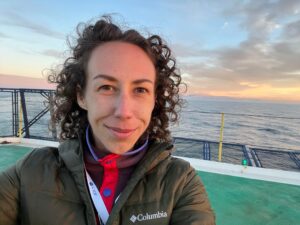
Maya Pincus started her career as an impact geologist at the University of Puerto Rico – Mayagüez, but moved to New York City to become a certified educator through the American Museum of Natural History MAT program. During her time as an Earth science teacher, she had the privilege to sail on the JOIDES Resolution twice as an onboard outreach officer. Now as a full-time science communicator for the U.S. Science Support Program, she continue to work towards her goal of making science engaging and accessible for everyone.
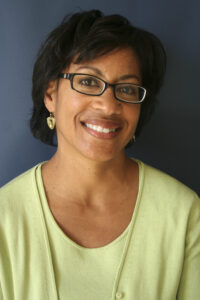
Lisa White is Director of Education and Outreach at the University of California Museum of Paleontology. Past positions held include San Francisco State University Professor of Geology, Chair of Geosciences, and Associate Dean of the College of Science and Engineering. Lisa has extensive experience with science enrichment programs for urban youth and she is active in efforts to increase diversity in the geosciences through field learning expeditions on land and at sea. A micropaleontologist by training specializing in fossil marine diatoms, she is a Fellow of the California Academy of Sciences and the Geological Society of America. As the education director at the UC Museum of Paleontology, Lisa develops and disseminates learning materials including virtual field experiences designed to explore the fossil record, global climate change, and the nature and process of science. Contact Lisa White for questions about A-STEP, ldwhite@berkeley.edu, 510-664-4966, https://ucmp.berkeley.edu/people/lisa-white/.
Participants
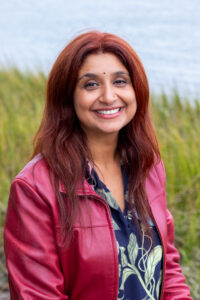
Mona Behl is the associate director of Georgia Sea Grant. She is also a public service faculty at the University of Georgia, and Non-Residential Fellow with the American Meteorological Society (AMS) Policy Program. Her work focuses on building the adaptive capacity of local communities to the impacts of extreme weather and climate change, broadening participation in science, and preparing people for the future of work. Behl earned her bachelor’s and master’s degree in physics from Panjab University in India, and a doctorate in physical oceanography from Florida State University.
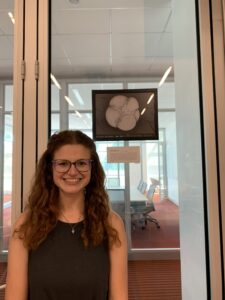
Samantha (Sam) Bombard is a PhD candidate in the Department of Earth, Geographic, and Climate Sciences at UMass Amherst. She is a micropaleontologist studying the changes in the Antarctic Ice Sheet and oceanography during a time when carbon dioxide concentrations were higher than today. Tiny fossils tell a huge story! In addition to research Sam has taught two undergraduate geology courses, Sedimentology and Introduction to Oceanography. After earning her PhD she would like to become a professor.
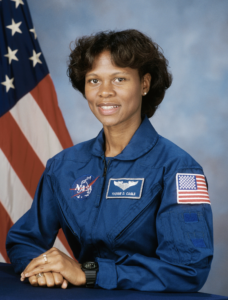
Dr. Yvonne Cagle was raised in Novato, graduated Novato High School, Novato, California, in 1977; received a Bachelor of Arts in Biochemistry from San Francisco State University in 1981, and a Doctorate in Medicine from the University of Washington in 1985. Transitional internship at Highland General Hospital, Oakland, California, in 1985. Received certification in Aerospace Medicine from the School of Aerospace Medicine at Brooks Air Force Base, Texas, in 1988. Completed residency in at Ghent Family Practice at Eastern Virginia Medical School in 1992. Received certification as a senior aviation medical examiner from the Federal Aviation Administration in 1995. Received an honorary Ph.D. in Humanities from Fordham University in 2014. Selected by NASA in April 1996, Cagle reported to NASA’s Johnson Space Center in Houston, Texas in August 1996. She completed two years of training and evaluation and is qualified for flight assignment as a mission specialist.
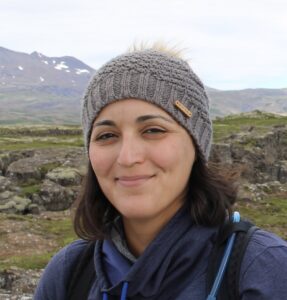
Dr. Cristina Cardona is an Associate Professor at the Community College of Baltimore County, where she teaches Environmental Science, Oceanography, Earth Science, and other Physical Science courses. She earned a B.S. and M.S. in Environmental Science from Dickinson College and American University. Her Ed.D. dissertation focused on non-science majors in community college online physical science courses and her other graduate research focused on remediation of arsenic, PAHs, and mercury.
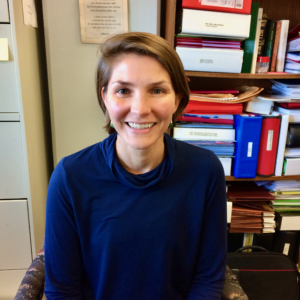
Elizabeth Deimeke has been an instructor in the biology department at Clark Atlanta University since 2018 and teaches biological sciences, conservation, and evolution. Currently, she is working toward her doctorate degree in Teaching & Learning Science Education at Georgia State University. Her research interests include understanding how first-year undergraduate students navigate transitions to college at an HBCU, with particular attention toward community, sense of belonging, science self-efficacy, and science identity.
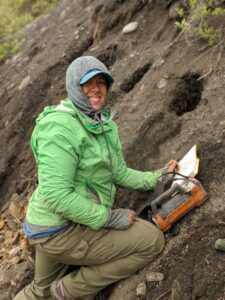
Christina DeVera is a Physical Scientist with the U.S. Geological Survey Geology, Energy & Minerals Science Center in Reston, VA. She joined the USGS in 2009 as an undergraduate student intern, where she started her USGS career digitizing half-century-old coal maps. Since then, Christina has been involved with numerous USGS research projects including studies related to CO2 sequestration, Alaska petroleum systems, and, most recently, she leads the USGS Geoheritage Sites of the Nation Project which focuses on the intersection of geology and societal values to provide educational and outreach resources to make geoscience topics and geologic mapping more relevant for the public.
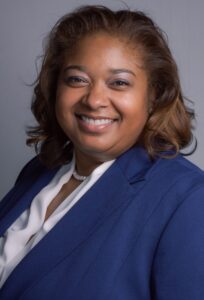
Dr. Valeisha Ellis is an Assistant Professor at Spelman College. She is a STEM faculty member in the Education Department. She teaches STEM Methods courses and collaborates with STEAM K-12 school partners and community stakeholders.
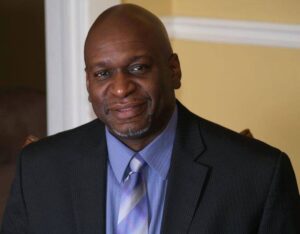
Wesley Fondal Jr. is a dedicated advocate for science education, especially within the African American community, with a diverse background spanning academia, program management, consulting, and military service. He is currently pursuing a doctoral candidacy in Global Leadership at Troy University, focusing on Black Male STEM identity and leadership, showcasing his deep commitment to advancing knowledge in these crucial areas. As Executive Director for the Department of Defense STARBASE ROBINS Program and CEO/Senior Consultant of E2 Educational Consulting, he actively works on enhancing STEM programs for at-risk students through curriculum design and community engagement. Wesley’s contributions to research, presentations, and grant acquisitions, including from NASA, reflect his active engagement in the scientific community and his relentless efforts to improve STEM education outcomes, particularly for African Americans.
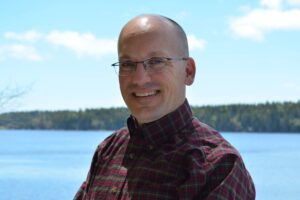
Mark Goldner teaches 7th and 8th grade science at the Roland Hayes K-8 School in Brookline, Massachusetts and has taught middle and high school science for the past 32 years. In his classes, Mark stresses the importance of developing a strong and positive relationship with the natural world, and that the best way to learn science is by doing authentic scientific investigations. He has also been a leader in bringing literacy and visual thinking skills into the science classroom. Mark has participated in several Polar research expeditions through PolarTREC and the ARMADA Project.
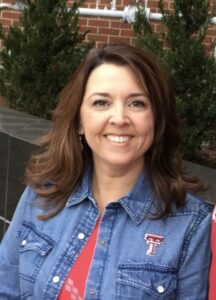
Elizabeth (Beth) Kirman is a passionate educator and STEM advocate based at Lower Dauphin High School and she teaches Climate Science for Educators at Penn State Harrisburg. With a childhood spent living, exploring, and classifying fossils in the Appalachian Mountains, Kirman’s love for geology sparked early on. Alfred Wegener remains her favorite scientist. With over two decades of geoscience teaching experience, Kirman holds a Ph.D. in Global STEM Education. Driven by a belief in the importance of exposing students to STEM careers early on, Kirman coaches students for various STEM competitions, aiming to drive the school-to-career STEM pathway. She was surprised and honored to be recruited for the School of Rock in Amsterdam. She is excited to learn and collaborate with the whole team!
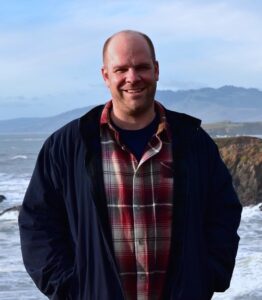
Kevin Kurtz is an award-winning nonfiction children’s author of 28 (and counting) published books about science and nature. He has been involved with the JOIDES Resolution / IODP as an educator since 2009 and has helped to develop and deliver a variety of educational resources and programs about the IODP, including six children’s books and the In Search of Earth’s Secrets Traveling Exhibit.
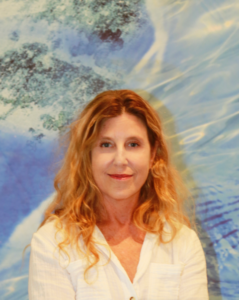
Dana Montlack is an Interdisciplinary Biospheric Artist, researcher and educator utilizing her decades-long exploration of natural elements to bridge the worlds of art and science through a unique style of layered imagery centering on the environment. Her groundbreaking work has been exhibited in museums and galleries worldwide, as well as featured in both private and public spaces, including Burning Man Festival, Whitney Marine Biology Research Center; Atlantis The Palm, Dubai; Scripps Memorial Hospital and the Museum of Contemporary Art in San Diego. In addition to her work as an artist, Dana teaches at The College of Arts at Georgia State University. She received a Bachelor of Fine Arts from the University of California Santa Cruz and her Master of Fine Arts in Mixed Media from Otis Parsons School of Art and Design, and she is an active member of a number of professional organizations, including Art Table Leadership, College Art Association and the Science-Art Collaboration.
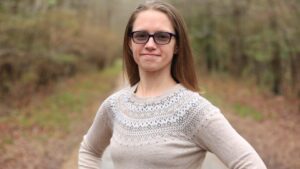
Lindsay Mossa is an Education Specialist at the American Geosciences Institute where she develops educational materials and teacher professional development opportunities related to all facets of the geosciences. Previously, she taught Life, Physical, and Earth Sciences for 15 years in schools in Maryland and upstate New York.
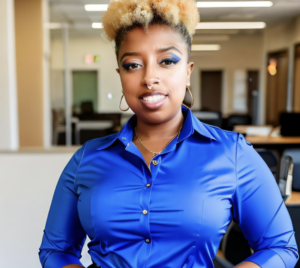
Monét Murphy, a driven graduate student at Savannah State University, passionately pursues a master’s degree in Marine Science while concurrently serving as the Georgia Sea Grant State Fellow for Georgia Conservancy, engaging in impactful research and advocacy. Her academic journey is underscored by a multifaceted background and a diverse array of studies. Monét’s passion lies at the intersection of Marine Micropaleontology, Environmental Anthropology, and Benthic Ecology. She brings a holistic perspective to her studies, recognizing the interconnectedness of marine life with human societies and the environment. With research experience garnered from the Woods Hole Oceanographic Institution, she delves into the dynamics of benthic invertebrates’ larvae dispersal and settlement, crucial for marine community resilience against disturbances. Beyond academia, Monét actively collaborates with stakeholders,
policymakers, and communities to promote sustainable practices for marine conservation. She advocates for diversity and inclusion in STEM, aiming to amplify underrepresented voices and perspectives. With unwavering commitment and expertise, Monét is poised to contribute meaningfully to the 2024 School of Rock, advancing knowledge and innovation in marine and environmental science.
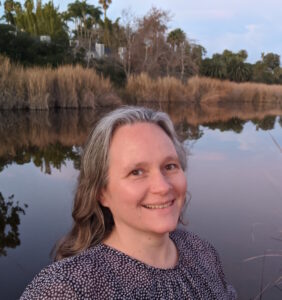
Dr. Waverly Ray teaches physical, cultural, urban, and world regional geography courses at San Diego Mesa College. As the faculty advisor to the student environmental sustainability and conservation club, she oversees the campus vegetable garden and supports climate and food justice projects. Since 2017, she has coordinated the My California GIS Mapping Showcase and Competition for 4th-12th grade students on behalf of the California Geographic Alliance. She currently serves as an advisory board member representing California community colleges for the California Global Education Project.
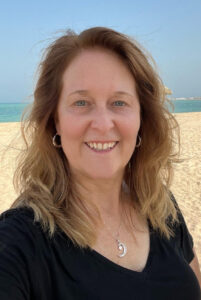
Dr. Christine Anne Royce has 30+ years of teaching experience at the K-college level and is currently a Professor in the Department of Teacher Education at Shippensburg University (PA) and served as the 2018-2019 NSTA President. Dr. Royce’s dedication to teaching has been recognized with prestigious awards, including the Presidential Awardee for Excellence in Science and Mathematics Teaching, the Pennsylvania Teacher Educator of the Year Award, the NAGT Outstanding Earth Science Teaching Award, and the NSTA Carleton Award for Service to Science Education. She has more than 100 publications, including the column Teaching Science Through Trade Books, and has recently published chapters related to immersing preservice teachers in blended learning, using digital tools and practices to construct meaning and literacy integration in science. Royce received her Doctorate in Curriculum, Instruction, & Technology Education – Science Education from Temple University. She holds an MA in Curriculum & Instruction from Delaware State University, an MS in Administration & Supervision from the University of Scranton, and an MBA with graduate certificates in Business Analytics and Advanced Business Studies from Shippensburg University. Her BSEd in Elementary Education is from Cabrini College.
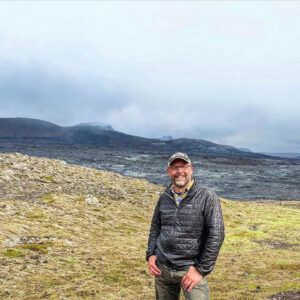
A geologist as well as a teacher, David Thesenga has been teaching physics, chemistry, and the Earth sciences for 24 years to both middle- and high-school students in Pasadena, New York, Chicago, and Boulder, Colorado. From watching the eruption of Mt. St. Helens to climbing the Cascades, growing up in Oregon fueled his interest in the world around him and a desire to understand how his landscape was formed. With an original interest in glaciology, David earned his BS in Geology/Geophysics from the University of Alaska Fairbanks and shifted to the mining industry in Cripple Creek, Colorado. After leaving mining, he earned his Masters of Science in Teaching from Boston College and never looked back. He has been a curriculum developer for the 7-10 Project of the California PreCollege Science Initiative (CAPSI) at the California Institute of Technology, a faculty associate for math and science teacher preparation at Claremont Graduate University, and is a former editor of The Earth Scientist, the journal of the National Earth Science Teachers Association. He was named an Albert Einstein Distinguished Educator in 2013/14 and worked for the National Science Foundation in the Directorate of Geosciences focusing on 3D printing of topographical concepts and assisting in the reimagining of the GLOBE program’s teacher professional development. Most recently, as part of PolarTREC he traveled to Antarctica with a research team studying glacial flow dynamics within the McMurdo Shear Zone on the Ross Ice Shelf.
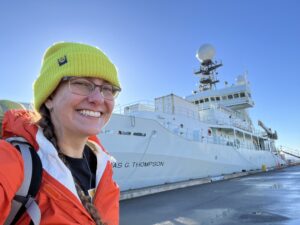
Dr. Tess Weathers is an Associate Professor in Engineering at Chabot College in Hayward, CA. Her background is in Civil and Environmental Engineering and Hydrology with research interests residing at the intersection of water, biology, and chemistry; in particular she is interested in the effects of contaminants on subsurface microbial communities, 3-D modeling of thermal and hydrologic flows in the marine subsurface, and water supply and quality improvements. She is passionate about providing tools and opportunities for success for systemically underrepresented students in STEM while simultaneously encouraging and promoting environmental literacy and climate action. When she is not in the classroom, Tess enjoys snowboarding, surfing, hiking, and watching the San Francisco Giants with her dog Buster.